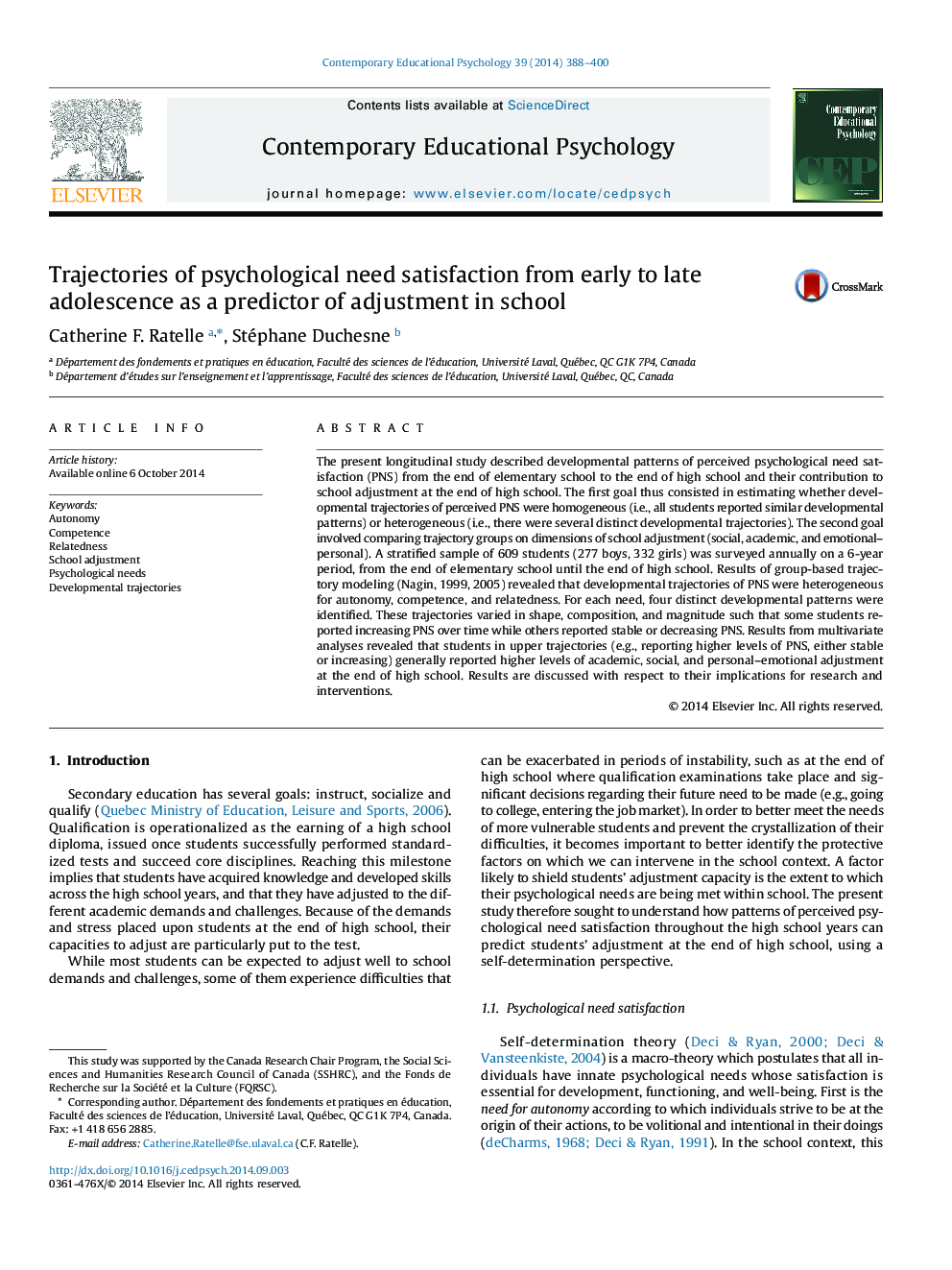| Article ID | Journal | Published Year | Pages | File Type |
|---|---|---|---|---|
| 352653 | Contemporary Educational Psychology | 2014 | 13 Pages |
•We used a 6-year longitudinal design that spanned from early to late adolescence.•We examined heterogeneous trends in the satisfaction of psychological needs for autonomy, competence, and relatedness at school.•To predict adjustment in school, considering whether developmental patterns increased, decreased, or remained stable was more useful than absolute levels of PNS.
The present longitudinal study described developmental patterns of perceived psychological need satisfaction (PNS) from the end of elementary school to the end of high school and their contribution to school adjustment at the end of high school. The first goal thus consisted in estimating whether developmental trajectories of perceived PNS were homogeneous (i.e., all students reported similar developmental patterns) or heterogeneous (i.e., there were several distinct developmental trajectories). The second goal involved comparing trajectory groups on dimensions of school adjustment (social, academic, and emotional–personal). A stratified sample of 609 students (277 boys, 332 girls) was surveyed annually on a 6-year period, from the end of elementary school until the end of high school. Results of group-based trajectory modeling (Nagin, 1999, 2005) revealed that developmental trajectories of PNS were heterogeneous for autonomy, competence, and relatedness. For each need, four distinct developmental patterns were identified. These trajectories varied in shape, composition, and magnitude such that some students reported increasing PNS over time while others reported stable or decreasing PNS. Results from multivariate analyses revealed that students in upper trajectories (e.g., reporting higher levels of PNS, either stable or increasing) generally reported higher levels of academic, social, and personal–emotional adjustment at the end of high school. Results are discussed with respect to their implications for research and interventions.
